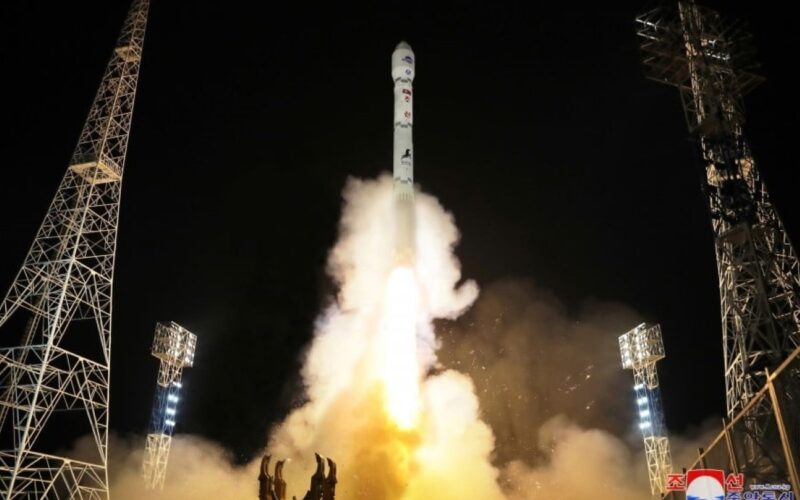North Korea claims it has successfully placed its first spy satellite into orbit on November 21, 2023.
The launch of the ‘Malligyong-1’ satellite was announced by The Korean Central News Agency (KCNA), the state news agency of North Korea. Reportedly, North Korean leader Kim Jong Un watched the event.
This launch, North Korea’s third during 2023, is part of the country’s plan to establish a space-based surveillance system.
North Korea’s first satellite launch attempt in May 2023 was thwarted by a second-stage rocket malfunction, causing the rocket to crash into the sea.
A subsequent attempt in August 2023 also failed, this time during the third stage. The rocket consequently disintegrated over the Yellow Sea, East China Sea and Pacific Ocean.
However, the success of the third mission remains under scrutiny. Japan’s Chief Cabinet Secretary Hirokazu Matsuno has stated that the Japanese government could not confirm whether the satellite had successfully entered Earth’s orbit.
Matsuno is quoted in a Japan Times article, saying that making that determination could take “a considerable amount of time,” because it would “require a comprehensive and specialized analysis”.
Following the launch, the Japanese J-Alert warning system was activated in Okinawa and an evacuation order was issued, though it was later revoked as the missile passed over the Pacific Ocean.
Japan’s Prime Minister Fumio Kishida emphasized that any launch using ballistic missile technology, even if referred to as a satellite, violates United Nations Security Council (UNSC) resolutions.
South Korean President Yoon Suk Yeol has also expressed concern about the implications of North Korea’s intercontinental ballistic missile (ICBM) capabilities.
In addition, North Korea has been condemned by the United States for using ballistic missile technology to launch the space launch vehicle. National Security Council spokesperson Adrienne Watson has declared that this “raises tensions and risks destabilizing the security situation in the region and beyond”.
Despite UNSC sanctions prohibiting such actions, North Korea has continued more than 100 ballistic missile tests since the beginning of 2022 and is now suspected to be preparing for a seventh nuclear test.
However, permanent council members Russia and China have often impeded a unified UNSC response to the launches.
Notably, there has been speculation that North Korea may have received Russian technological assistance for its recent ‘Malligyong-1′ satellite launch, highlighting a growing relationship between these two isolated nations.
In September 2023, North Korean leader Kim Jong Un returned from a six-day visit to Russia, bringing back with him a set of Russian kamikaze and Geran-25 drones. This development sparked international concerns over a possible violation of UNSC sanctions, prohibiting the transfer of military technology to North Korea.
This alliance is especially significant given the current geopolitical landscape, in which North Korea and Russia are facing global sanctions and criticism.

